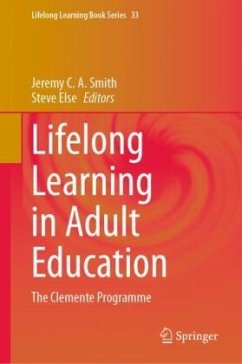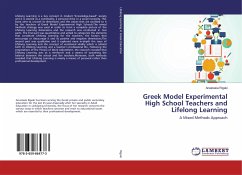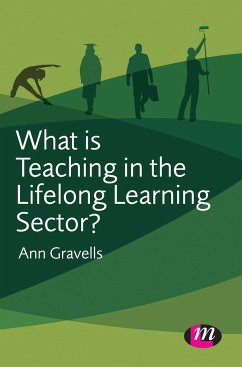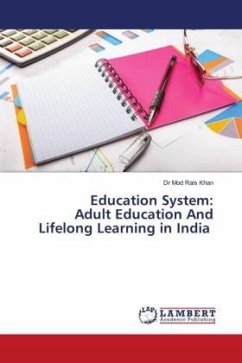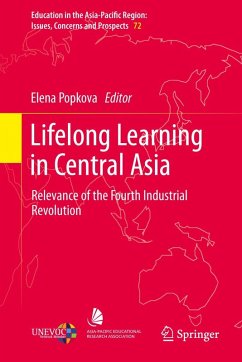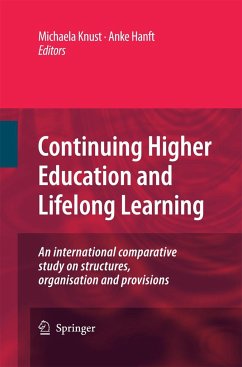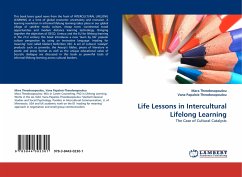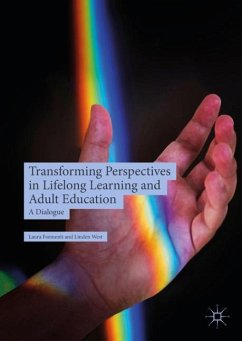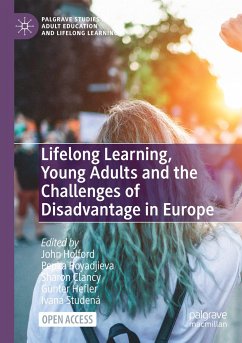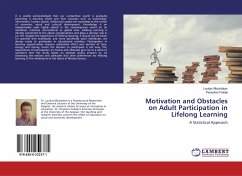
Motivation and Obstacles on Adult Participation in Lifelong Learning
A Statistical Approach
Versandkostenfrei!
Versandfertig in 6-10 Tagen
25,99 €
inkl. MwSt.

PAYBACK Punkte
13 °P sammeln!
It is widely acknowledged that our competitive world is gradually becoming a learning world and that concepts such as knowledge, information, human capital, intellectual capital are nowadays at the center of economic, social and cultural development. Knowledge is an indispensable asset highly valued in the contemporary world on an individual, national, international or global level. Lifelong learning is directly connected to the above considerations and plays a decisive role in our life. Despite the importance of lifelong learning, it should not be taken for granted that individuals, and more ...
It is widely acknowledged that our competitive world is gradually becoming a learning world and that concepts such as knowledge, information, human capital, intellectual capital are nowadays at the center of economic, social and cultural development. Knowledge is an indispensable asset highly valued in the contemporary world on an individual, national, international or global level. Lifelong learning is directly connected to the above considerations and plays a decisive role in our life. Despite the importance of lifelong learning, it should not be taken for granted that individuals, and more specifically adult individuals, are always ready to participate in educational activities. Participation in learning opportunities requires substantial effort and sacrifice of time, energy and money, hence the decision to participate is not easy. The dependence of participation on motive and obstacles give rise to a series of questions that this study makes an attempt giving answers to, by examining the motives and obstacles that drive preferences for lifelong learning of the inhabitants of the island of Rhodes-Greece.



